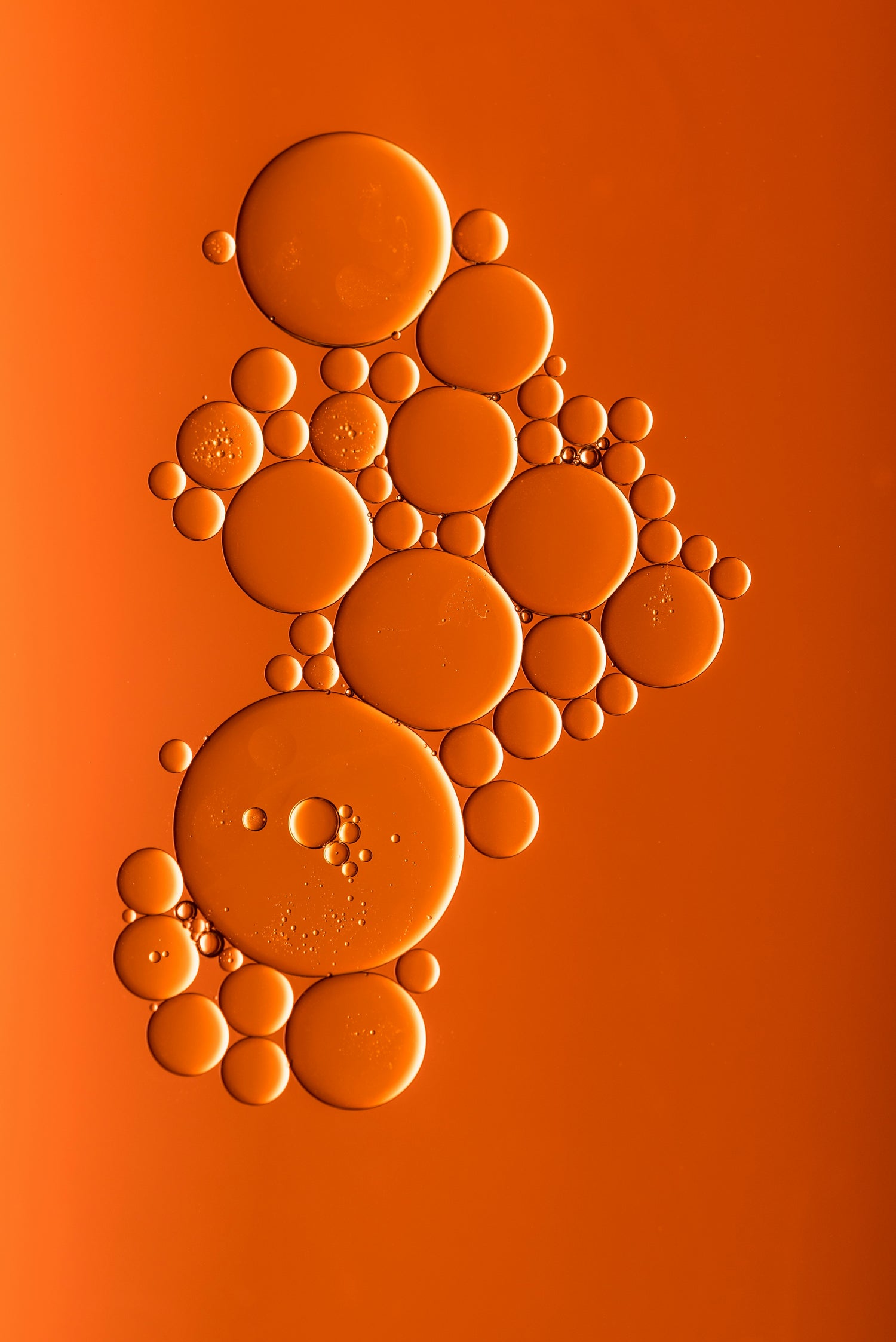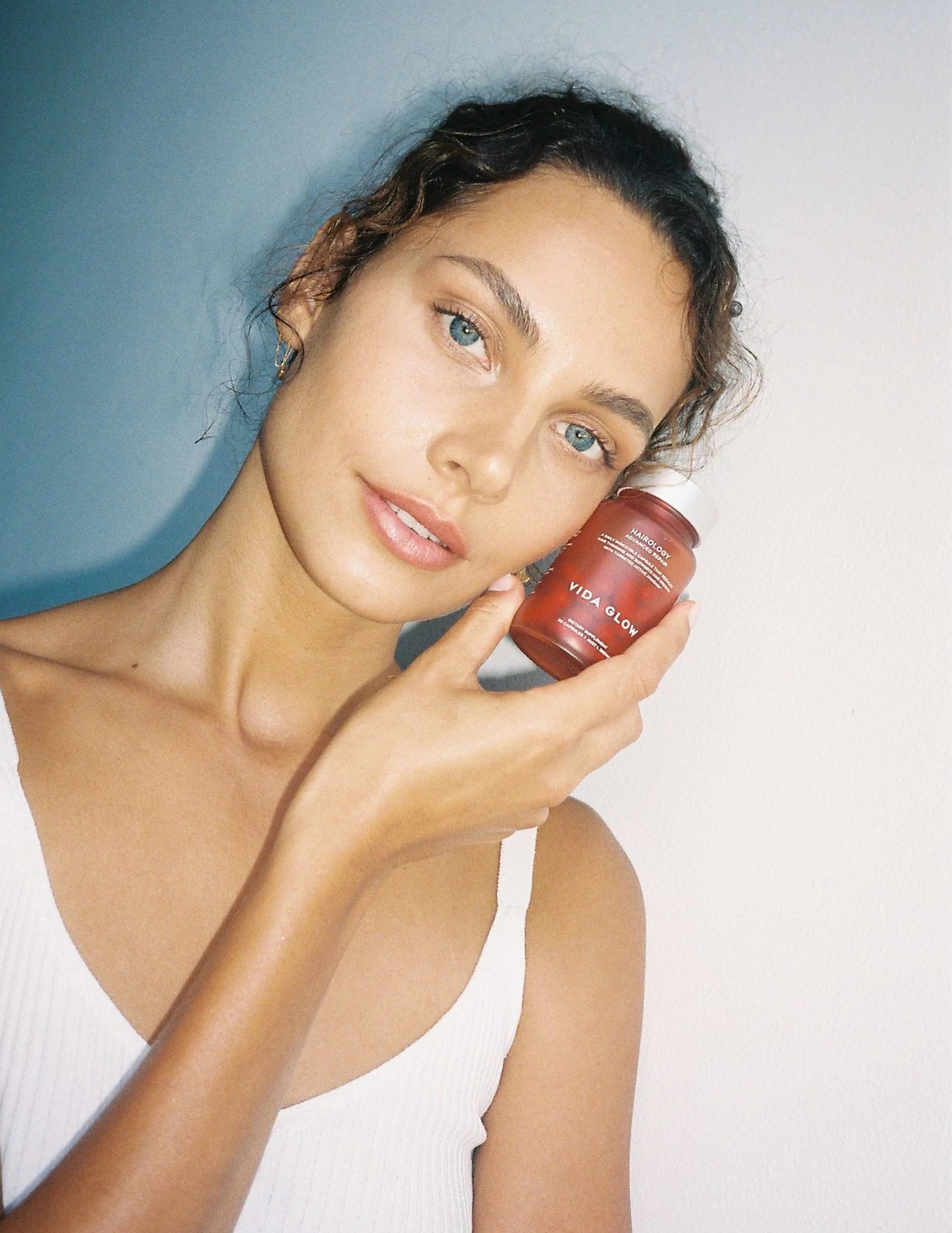I'm going to assume you have skin concerns, seeing as you clicked on this blog. Well this is part one of our skin series, where I tell you natural remedies for skin concerns such as acne, eczema and dermatitis. In this blog post, I am going to run through fish oils, more specially in the form of BOTH EPA and DHA, and why they are super integral in either healing from acne or to achieve glowing, healthy & smooth skin.
Understanding Acne: The Pathophysiology
Acne, is a symptom of what can often be a complex interplay of factors including excess sebum production, clogged pores, inflammation and bacterial overgrowth. It is important to understand some of these reasons behind why acne can occur, so here is a brief overview of the pathophysiology behind acne:
1. Sebum Overproduction: Sebaceous glands in the skin produce an oily substance called sebum, which helps lubricate and protect the skin. However, overproduction of sebum can lead to clogged pores, creating an ideal environment for acne-causing bacteria to thrive.
2. Inflammation: Inflammatory mediators play a significant role in acne development. When pores become clogged with excess sebum and dead skin cells, inflammation ensues, leading to the characteristic redness, swelling, and discomfort associated with acne lesions.
3. Proliferation of Propionibacterium acnes (P. acnes): Propionibacterium acnes, a type of bacteria that naturally resides on the skin, can proliferate in clogged pores, triggering an inflammatory response and contributing to the formation of acne lesions.
Fish Oil and Acne:
Fish oil, renowned for its rich content of omega-3 fatty acids, particularly eicosapentaenoic acid (EPA) and docosahexaenoic acid (DHA), has garnered attention for its potential therapeutic effects on acne. Here's how fish oil may benefit individuals struggling with acne:
- Anti-Inflammatory Properties: Omega-3 fatty acids, especially EPA, exhibit potent anti-inflammatory properties that can help mitigate the inflammation associated with acne. By reducing inflammatory mediators in the skin, fish oil may help alleviate redness, swelling, and discomfort associated with acne lesions.
- Regulation of Sebum Production: Whilst we spoke earlier about acne being caused by an "overproduction of sebum", you might be thinking, well why would you want to add more fats/ oils into the equation. Well many studies suggest that omega-3 fatty acids may help regulate sebum production in the skin. This is because omega-3 fatty acids help to control the body's level of testosterone, which is a hormone that can trigger the overproduction of sebum. I get to see if everyday in clinic, when the prescription of high dose EPA/DHA quite literally lowers the testosterone in people, as I get see pathology reports reflecting this alongside clinical results. By modulating sebum secretion, fish oil could potentially prevent pores from becoming clogged and reduce the likelihood of acne breakouts.
- Antibacterial Effects: Research indicates that omega-3 fatty acids may possess antibacterial properties, which could help combat the proliferation of acne-causing bacteria like P. acnes. By inhibiting bacterial growth, fish oil may contribute to clearer, healthier skin.
- Help prevent premature ageing: Omega-3 fatty acids literally inhibit our body's ability to produce matrix metalloproteinases (MMP). These MMPs are known to degrade both collagen and elastin which are the proteins responsible for our skins structure and elasticity.
Fish oil supplements and incorporating Omega-3s into your diet
Omega-3 fatty acids are in foods such as salmon, mackerel, sardines, trout, flaxseeds, chia seeds, walnuts and hemp seeds. However, when I am dealing with a client with pretty severe acne, my opinion is that it is extremely difficult to get in a therapeutic amount of Omega-3s from food alone. Therefore I prescribe high dose Omega-3s to help kickstart the healing journey. This way I can also manage the ratio of EPA to DHA and you want to make sure you still are receiving DHA. Generally a 2:1 ratio is great, then when your acne fully heals, you can swap to just dietary forms of Omega-3s. Supplementation is always important to do through a health practitioner, and there are obviously good forms of fish oil supplements and not so good forms. Our supplement manufacturing guidelines through the TGA are much better in Australia, so I first say make sure you are purchasing something from Australia, then my favourite brands to prescribe are Orthoplex, Bioceuticals, Bioclinic naturals.
Scientific Evidence Supporting Fish Oil for Acne
Here are some studies and scientific reviews to read that support the use of fish oil for acne and other skin concerns:
https://pubmed.ncbi.nlm.nih.gov/32463305/
https://www.tandfonline.com/doi/full/10.2147/CCID.S17220
https://onlinelibrary.wiley.com/doi/abs/10.1111/j.1524-475X.2008.00388.x
https://surgicaltechnology.com/OpenAccess/1494-Lev-Tov-AWH-FINAL-cr-.pdf




Leave a comment
This site is protected by hCaptcha and the hCaptcha Privacy Policy and Terms of Service apply.